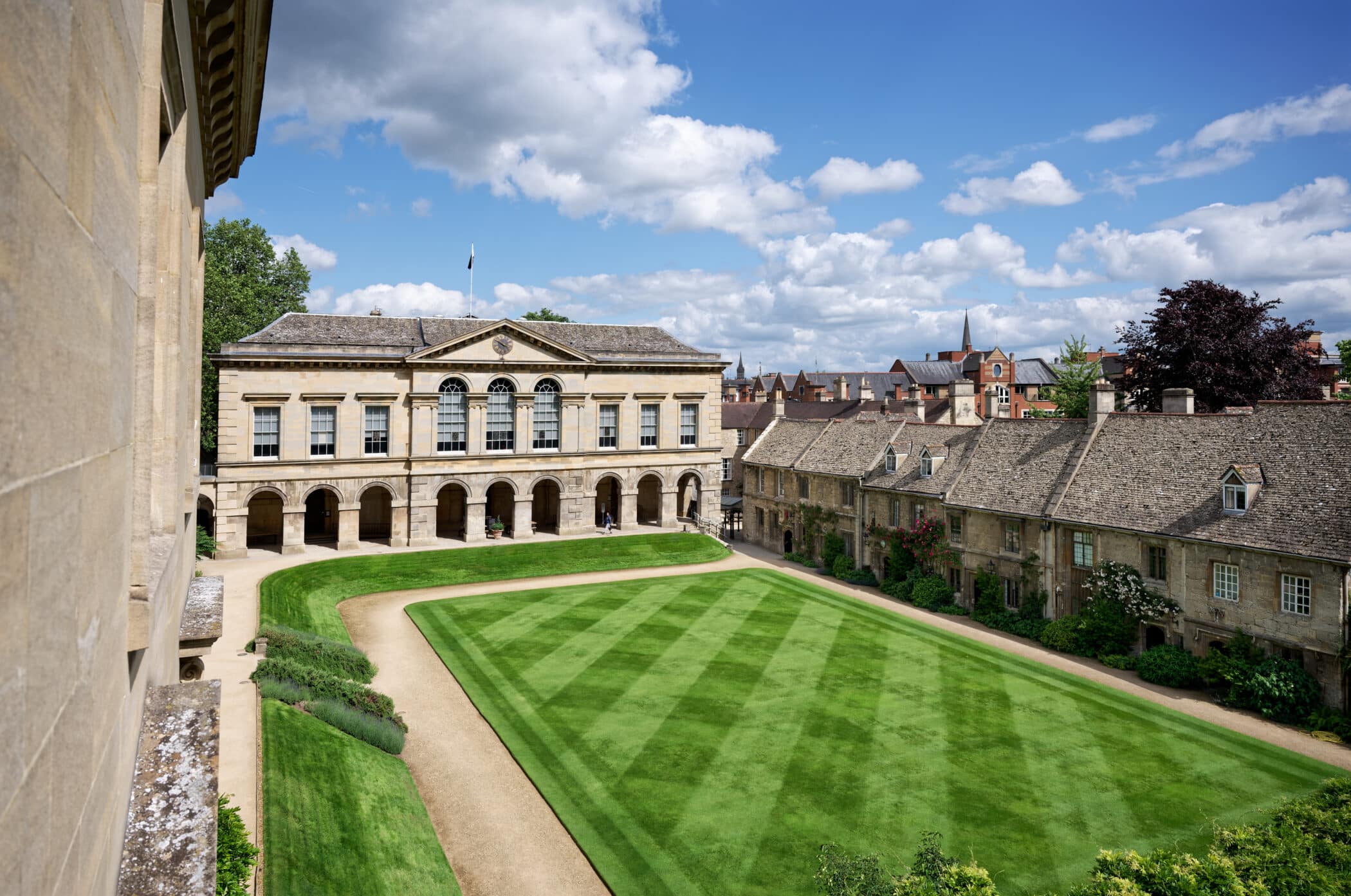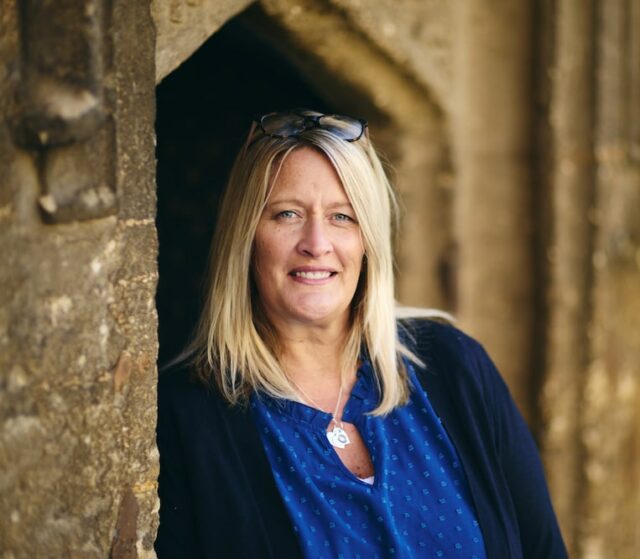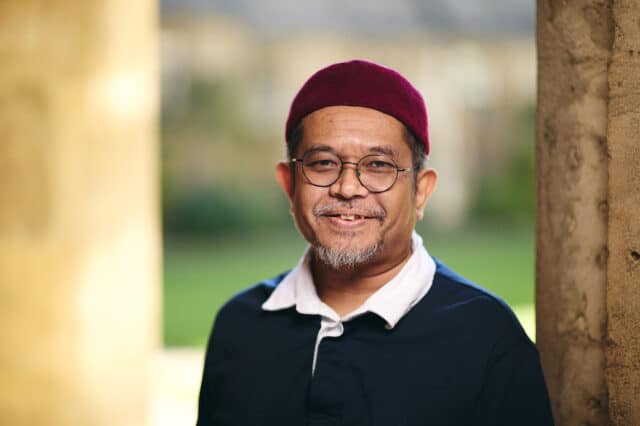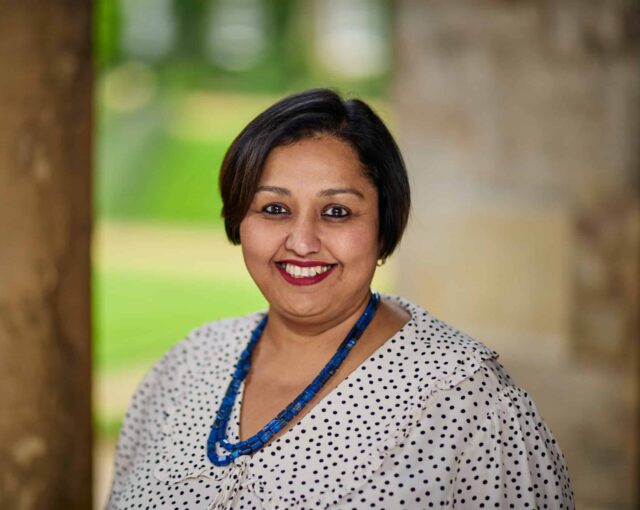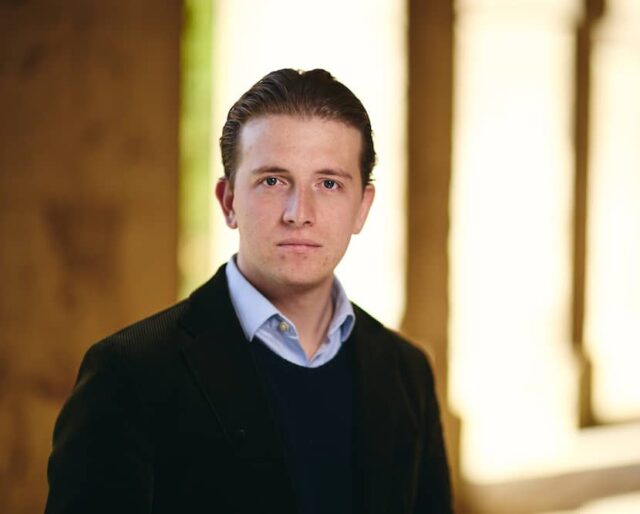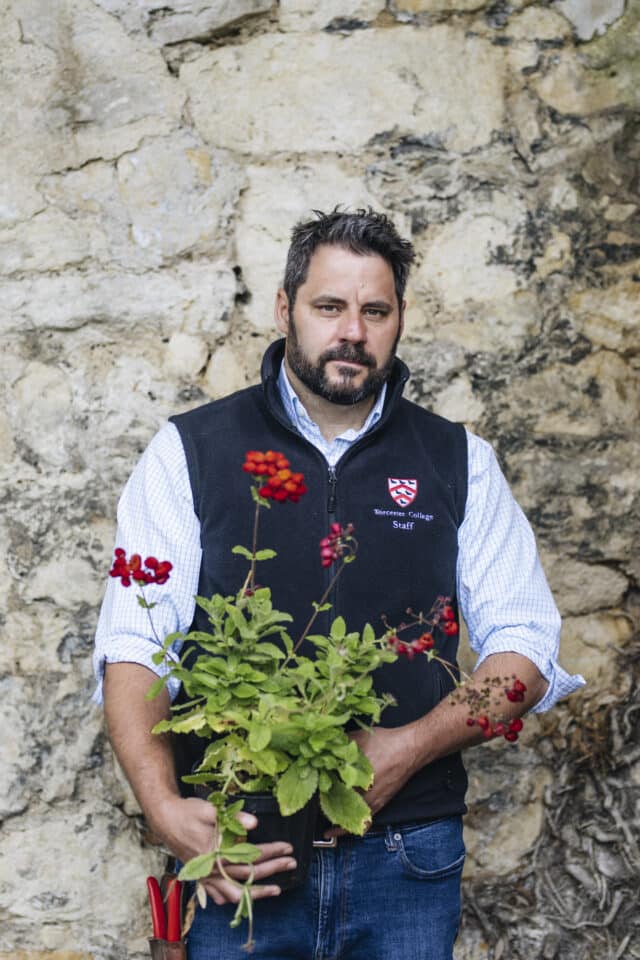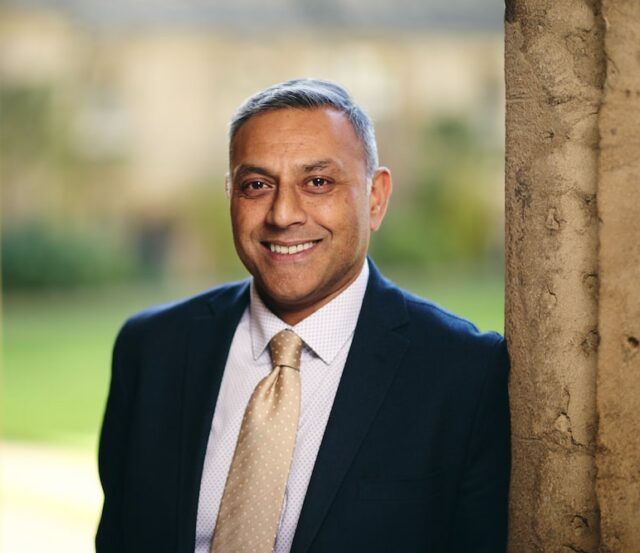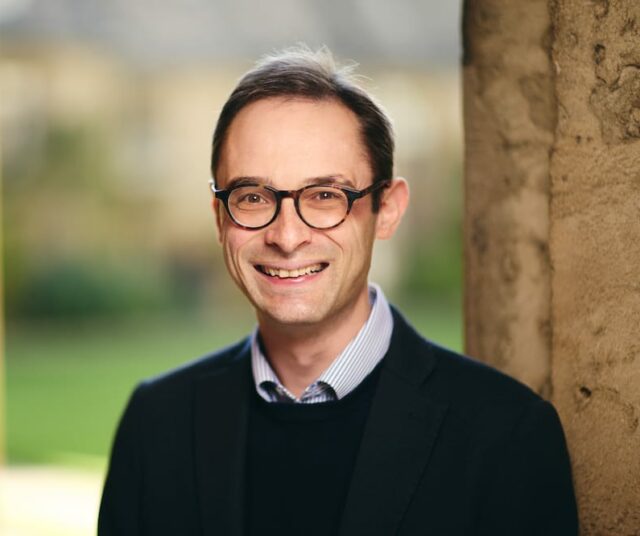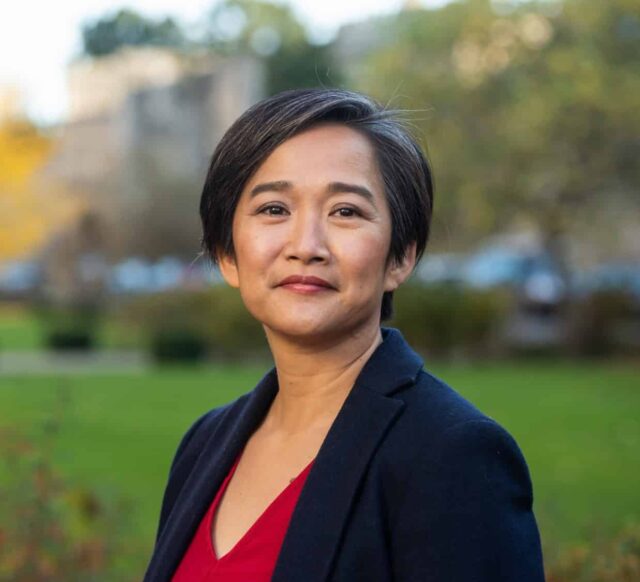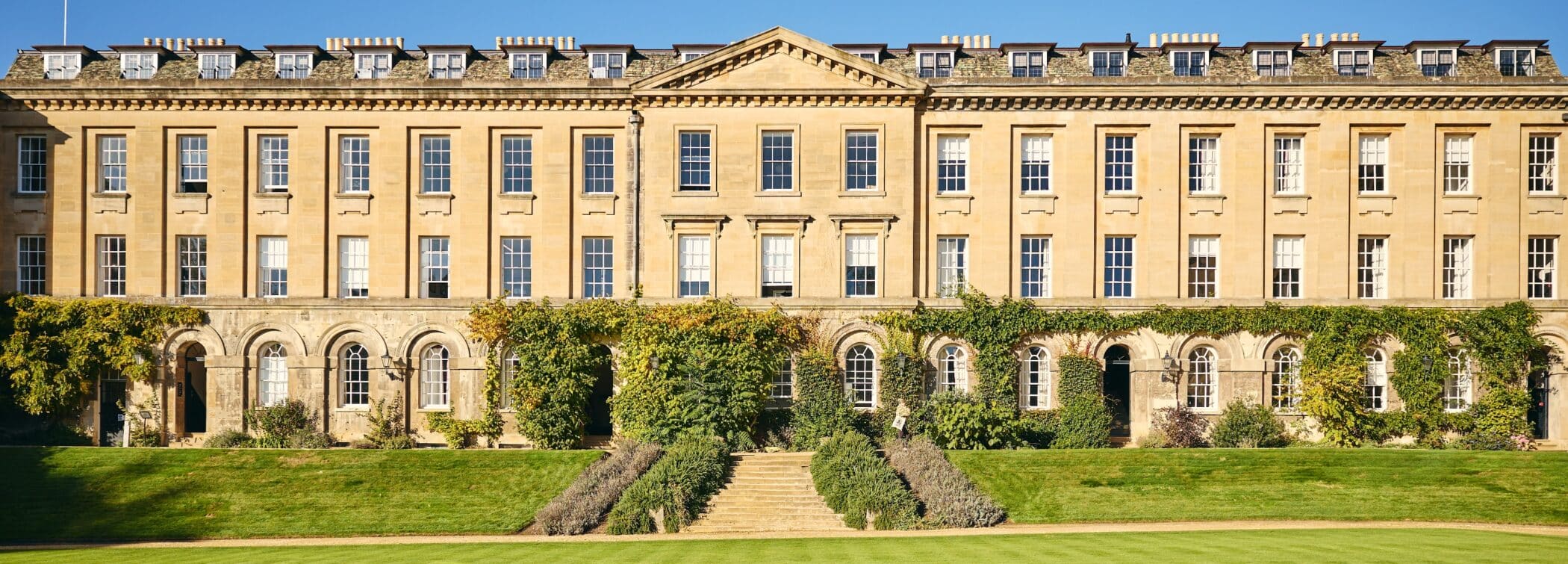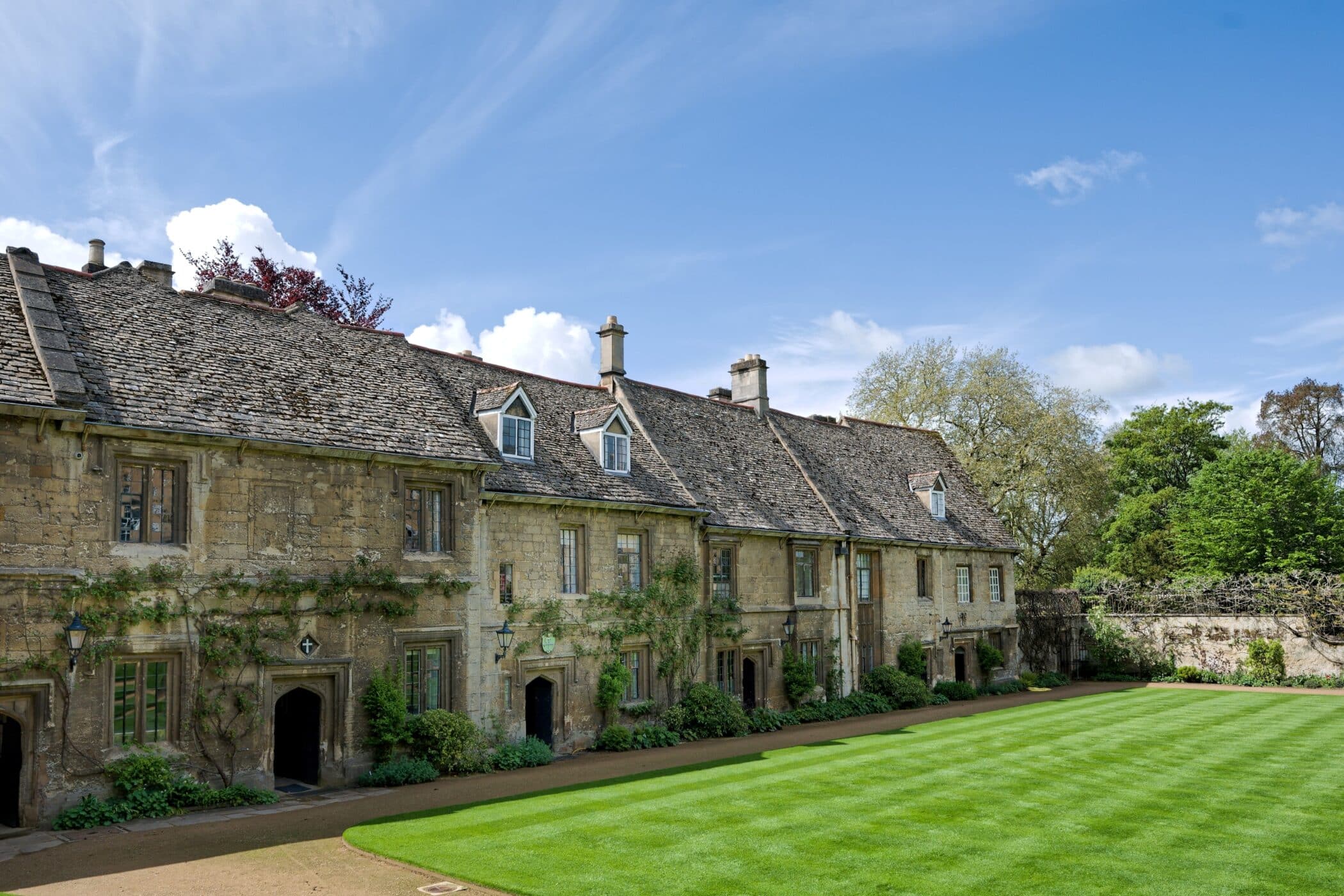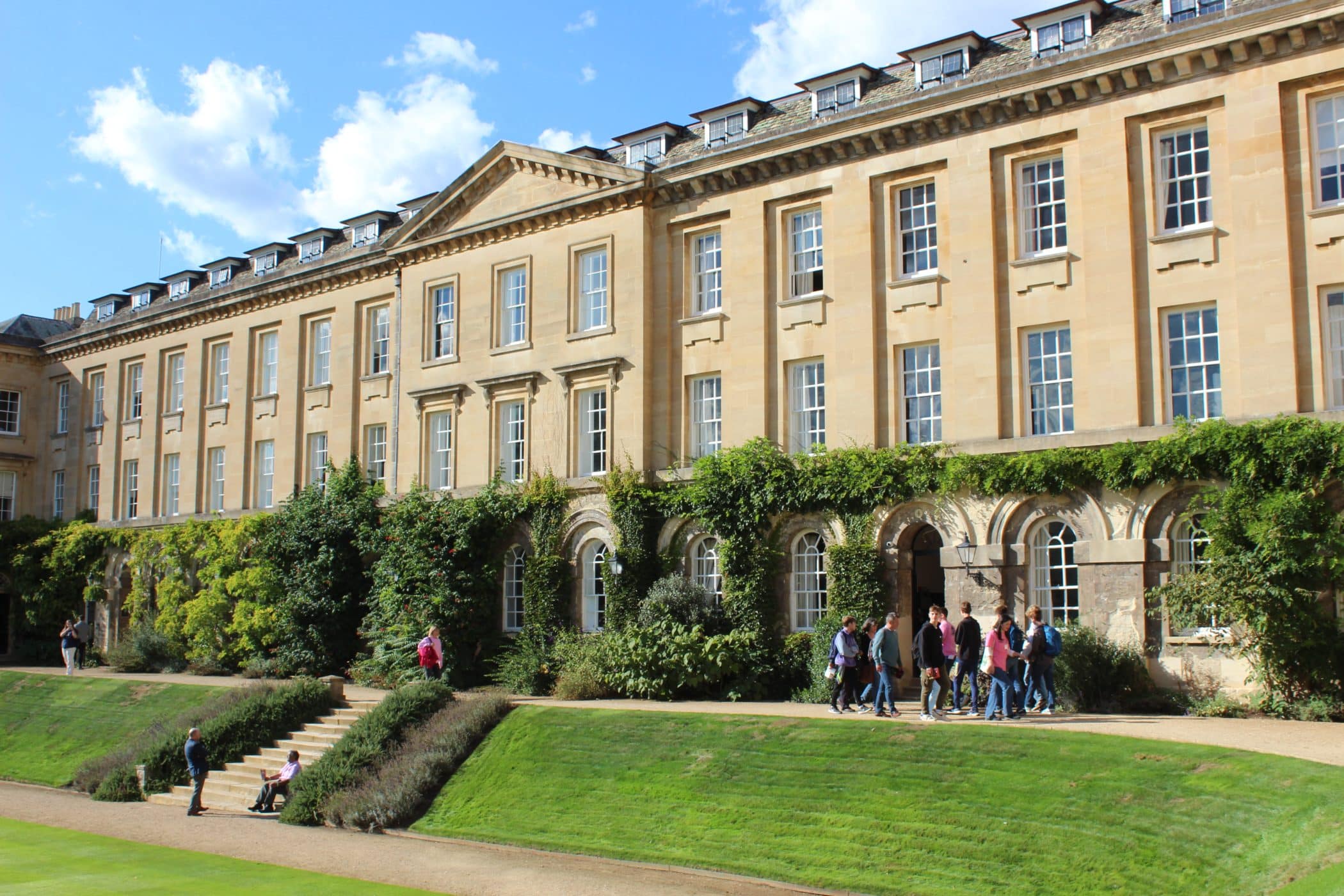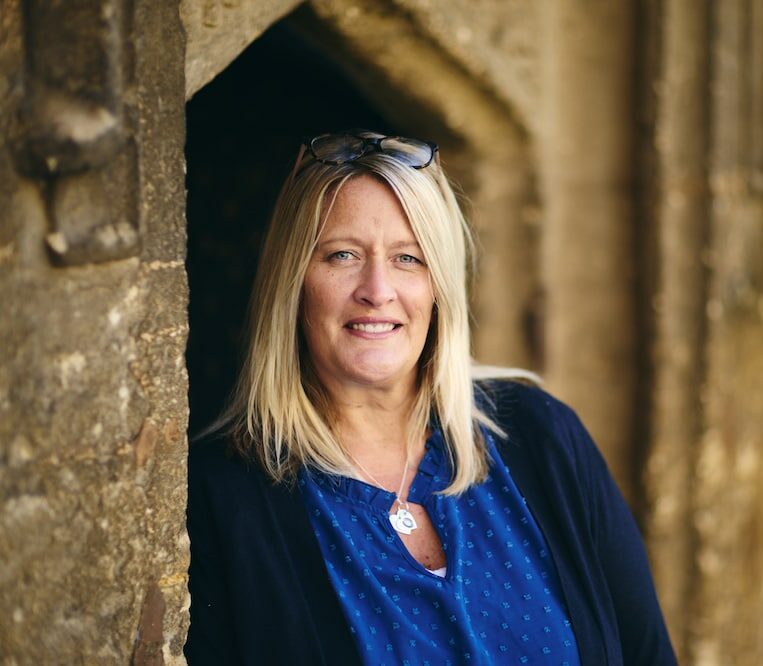
Pamela Abel
Purchase Ledger Controller
Responsibilities include all aspects of managing the Purchase Ledger at Worcester College and ensuring all College invoices are processed and paid efficiently. Other duties include payments for external tuition, reconciliation of College credit card expenses and collaborating with other departments across the College to ensure accurate recording of financial transactions .
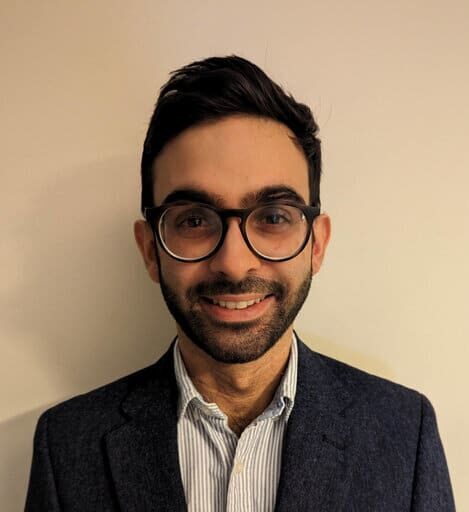
Dr Dinesh Addala MRCP
College Lecturer in Medicine
Education
BA BM BCh (Oxford)

Professor Ian Aitchison
Emeritus Professor of Physics
Tutor in Physics (1966-2003)
Emeritus Fellow
Education
MA PhD (Cambridge), MA DPhil (Oxford)
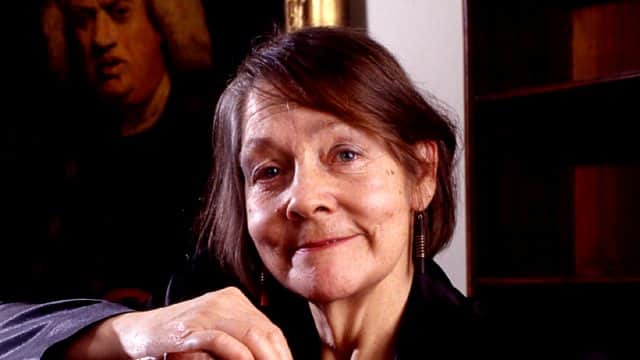
Professor Jean Aitchison
Emeritus Rupert Murdoch Professor of Language & Communication
Emeritus Fellow
Education
AM (Harvard), MA (Cambridge), MA (Oxford)
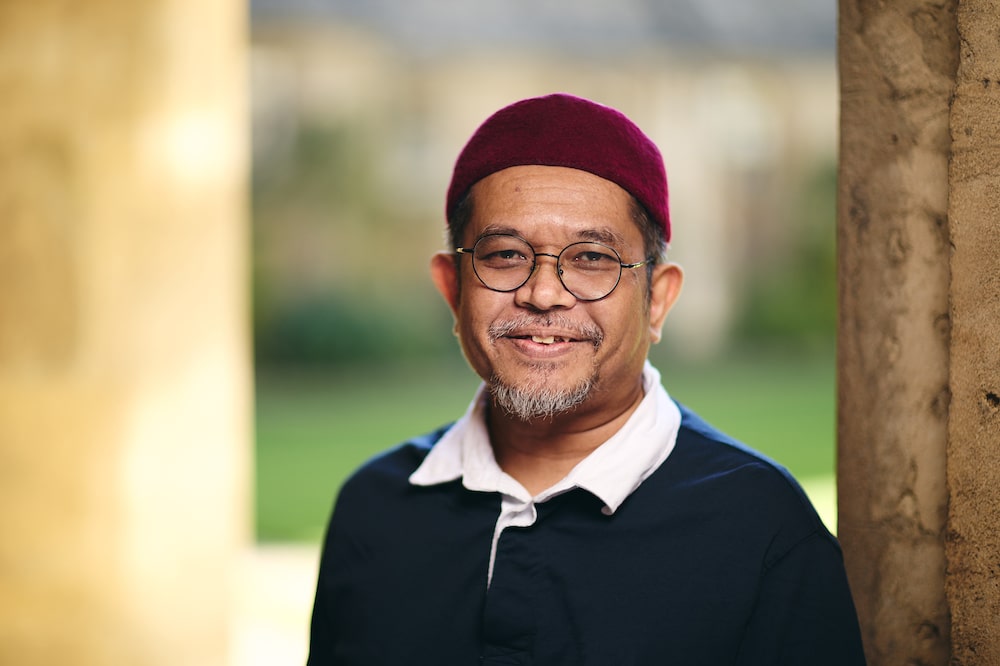
Dr Afifi al-Akiti DPCM DPMS PMP
KFAS Fellow in Islamic Studies & Lecturer in Theology
Supernumerary & Governing Body Fellow
University of Oxford Muslim Chaplain
Education
BA (Belfast), MSt DPhil (Oxford)
Dr Afifi al-Akiti is a Fellow at Worcester College and as one of the University lecturers on Islam he oversees the teaching provision in the Theology & Religion Faculty. He teaches on all aspects of Islamic Studies.
- Islamic theology, philosophy and science.
- The works of al-Ghazali (d. 1111), especially with regard to the influences from the Greek philosophical tradition and, most notably, the writings of Avicenna (d. 1058).
- The relationship between science and religion in the Islamic world with particular attention to the reception of the rational sciences in the kalam tradition and in madrasa culture.
- Medieval Arabic manuscripts and Moroccan religious lithographs (Hajariyyat).
- Medieval Islamic astronomy (`ilm al-falak).
- Islamic law, primarily the Shafi’i school.
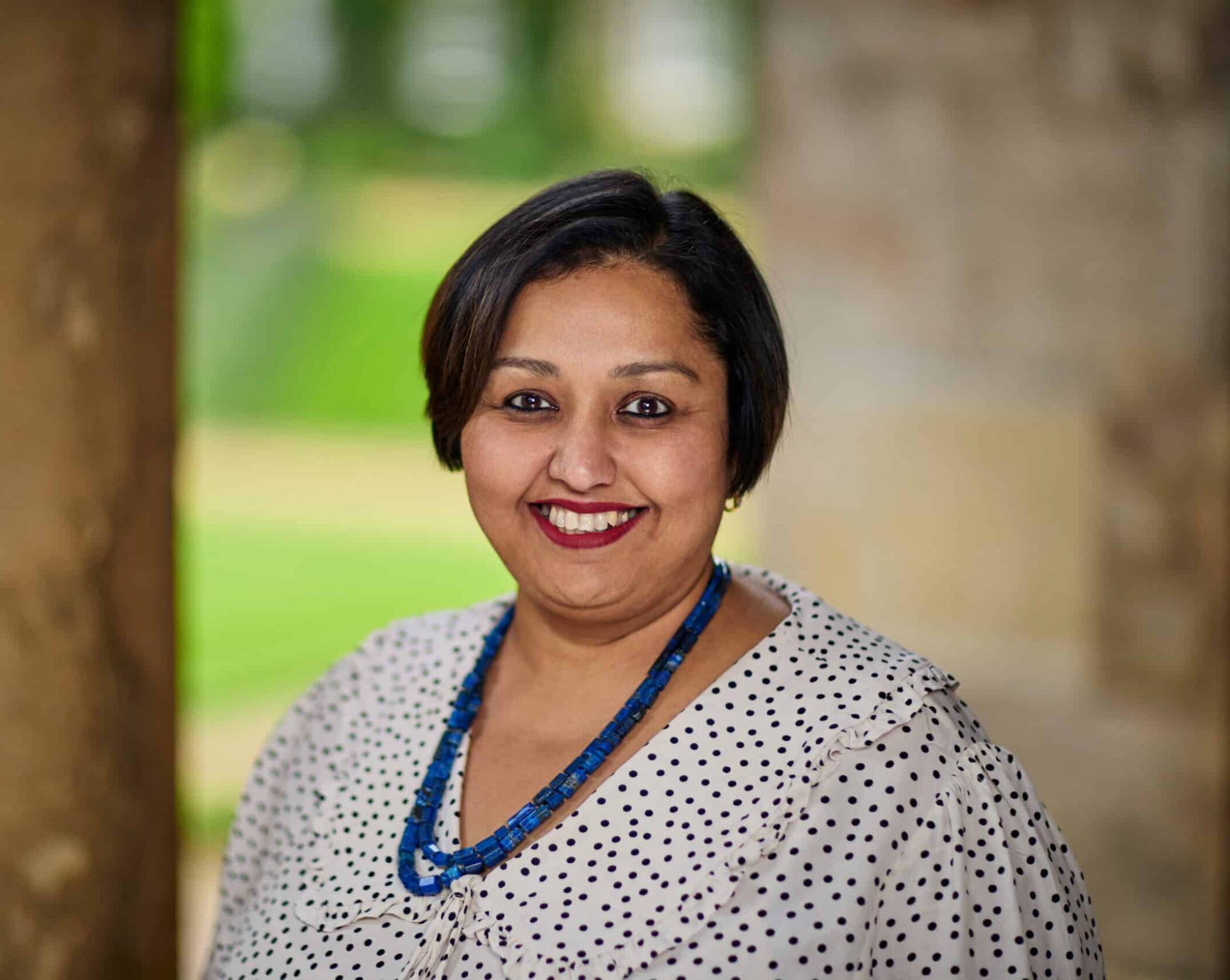
Megha Anand
HR Advisor
Working hours:
- Monday, Tuesday and Friday 8:30am – 5pm
- Wednesday and Thursday – 9am – 1pm

Professor Brian Angus FRCP FFTM
College Lecturer in Medicine
Professor and Reader in Infectious Diseases
Director of the Oxford Centre for Clinical Tropical Medicine and Global Health
Education
BSc, MB ChB, DTM&H
Professor Brian Angus is the Director of the Oxford Centre for Clinical Tropical Medicine and Global Health. He joined the Nuffield Department of Clinical Medicine in 1993 and originally worked in Thailand and Ghana studying pharmacokinetics in severe malaria and melioidosis. His research focus is now on clinical trials and vaccine development in COVID, malaria, influenza, HIV, Chronic Fatigue Syndrome, and enteric fever. He is Clinical Tutor in Medicine and Associate Professor and Reader in Infectious Diseases at the University of Oxford. He holds an honorary Senior Clinical Scientist title at the Medical Research Council Clinical Trials Unit (MRC CTU).
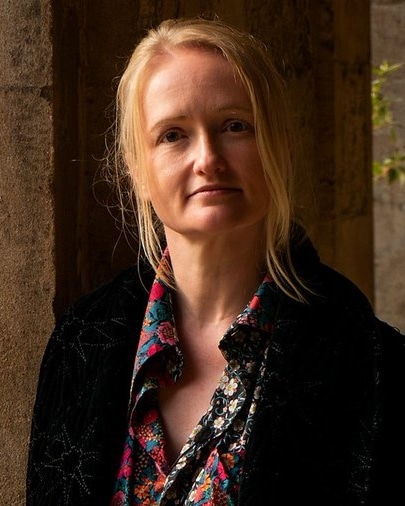
Professor Laura Ashe FRHistS
David Woods Kemper Family Fellow & Tutor in English
Professor of English Literature
Education
BA MPhil PhD (Cambridge), MA (Oxford)
Professor Laura Ashe teaches medieval literature, covering the early medieval period with first years (650-1350), and the later Middle Ages (1350-1550) and Shakespeare with second years, together with all kinds of specialist medieval topics in second and third year options. She also co-teaches a cross-period course on ‘Tragedy’ from ancient Greece to the present day.
Undergraduate: Early Medieval Literature, 650-1350; Late Medieval Literature, 1350-1550; Shakespeare; comparative literatures 1000-1550; Tragedy, from Aeschylus to the present day.
Graduate teaching and research supervision: I offer options on the high middle ages and beyond for the MSt courses in Medieval Literature and Medieval Studies, and regularly supervise MSt dissertations in a great variety of fields.
I welcome prospective doctoral students wishing to work on any aspect of the Conquest and the post-Conquest period, broadly considered, and particularly on the multiple literatures of England; on the literatures of kingship, chivalry and aristocratic culture; on the rise of interiority and individuality in literature and culture; on the relation of Church and society; on Arthurian literature throughout the Middle Ages; on national and community identities, medieval imperialism and postcolonialism; on medieval romance, and questions of genre; on chroniclers and historiographies.
I am currently supervising four doctoral research students: on multilingualism and translation in the high middle ages; on heraldic and chivalric culture during the Hundred Years’ War; on trickster figures in romance, and on monstrous representations of Jews in late medieval England.
I work on literature, history, culture and ideas across the Middle Ages from the tenth to the sixteenth century, with a focus on England and its neighbours. I’m currently writing a monograph on Chaucer, developing new readings of his works that show his deep affinities with modern and current philosophies of subjectivity, recognition, and ethical agency.
My early research focused on the multilingual, French, Latin and English literary environment of post-Conquest England; Fiction and History in England, 1066-1200 (2007), examined ideologies of national identity and imperialism, the genres of romance and chronicle, and the first colonial discourses of the English in medieval Ireland. In 2015 I published Early Fiction in England: From Geoffrey of Monmouth to Chaucer, a Penguin Classics volume of high medieval texts in new translations and editions, intended both for students and the general reader. As an interdisciplinary historian I’ve contributed a volume to the Penguin Monarchs series, Richard II (2016), and in 2020 published Conquests in Eleventh-Century England: 1016, 1066, co-edited with Emily Ward of Cambridge. Other co-edited volumes include The Exploitations of Medieval Romance (2010), with Judith Weiss and Ivana Djordjevic; War and Literature (2014), with Ian Patterson; and Medieval and Early Modern Religious Cultures (2019), a festschrift for Vincent Gillespie, with Ralph Hanna.
My most significant work to date (supported by a Philip Leverhulme Prize in 2009, a Leverhulme Research Fellowship in 2015, and the Morton Bloomfield Visiting Fellowship at the English Department of Harvard University in 2016), offered a new interpretation of the great changes of the high middle ages as a whole, in both religious and secular cultures: The Oxford English Literary History vol. 1. 1000-1350: Conquest and Transformation (Oxford University Press, 2017), now in paperback (2021).
Looking forward, I’m working towards a major project with a wider period purview, seeking to centre the European middle ages in a much broader literary history from the Greeks to the global present.
I am one of the editors of New Medieval Literatures: NML 23 (2023) was published in March, NML 24 is in production, and we’re accepting submissions for NML 25 and 26.
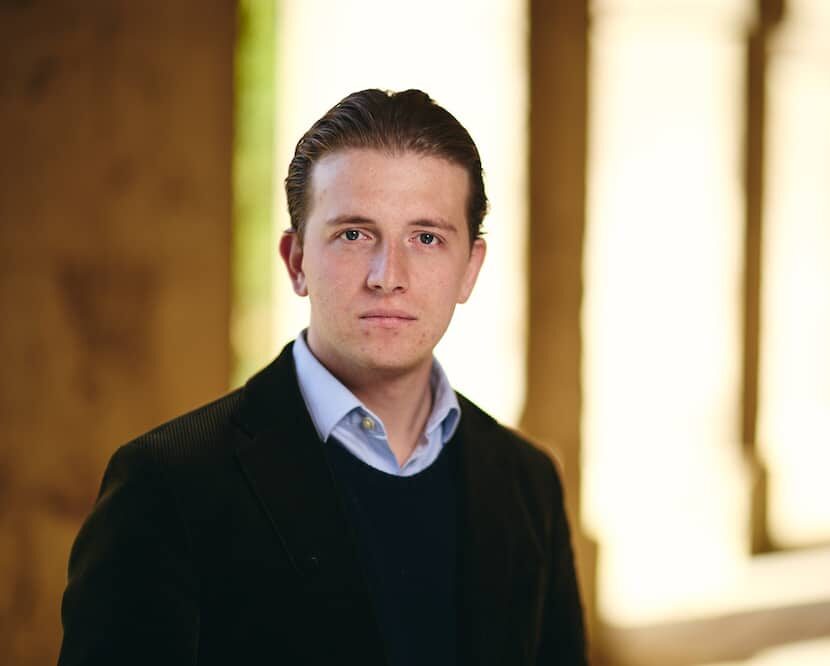
Dr William Aslet
Scott Opler Junior Research Fellow
Education
BA (Oxford), MPhil PhD (Cambridge)
William is an architectural historian who specialises on the early eighteenth century in Britain and Europe. His PhD was on the architecture of James Gibbs, the architect of the Radcliffe Camera in Oxford, St Martin’s-in-the-Fields in London, and a number of other important buildings in Britain. He was also the author of an extremely influential publication, A Book of Architecture of 1728. Gibbs was the first British architect to train in Rome, and it is on his training there under the leading architect Carlo Fontana that William’s research currently focuses. William studied for an undergraduate degree in History at Somerville College, Oxford, and he took both of his postgraduate degrees at Peterhouse, Cambridge. His favourite place in Worcester is the Lower Library, whose collection of British architectural drawings from the seventeenth and eighteenth centuries is second to none.

Dr Paul Azzopardi
Fellow & Tutor in Psychology and Dean
Lecturer, Department of Experimental Psychology
Education
MA (Oxford), PhD (Victoria University of Manchester)
Dr Azzopardi’s research field is the neural basis of visual perception and conscious awareness, and his interests include cortical magnification factors, face perception, motion perception, the neural basis of blindsight, mechanisms underlying perceptual decisions, and disorders of conscious awareness such as found in patients with blindsight and visual neglect.
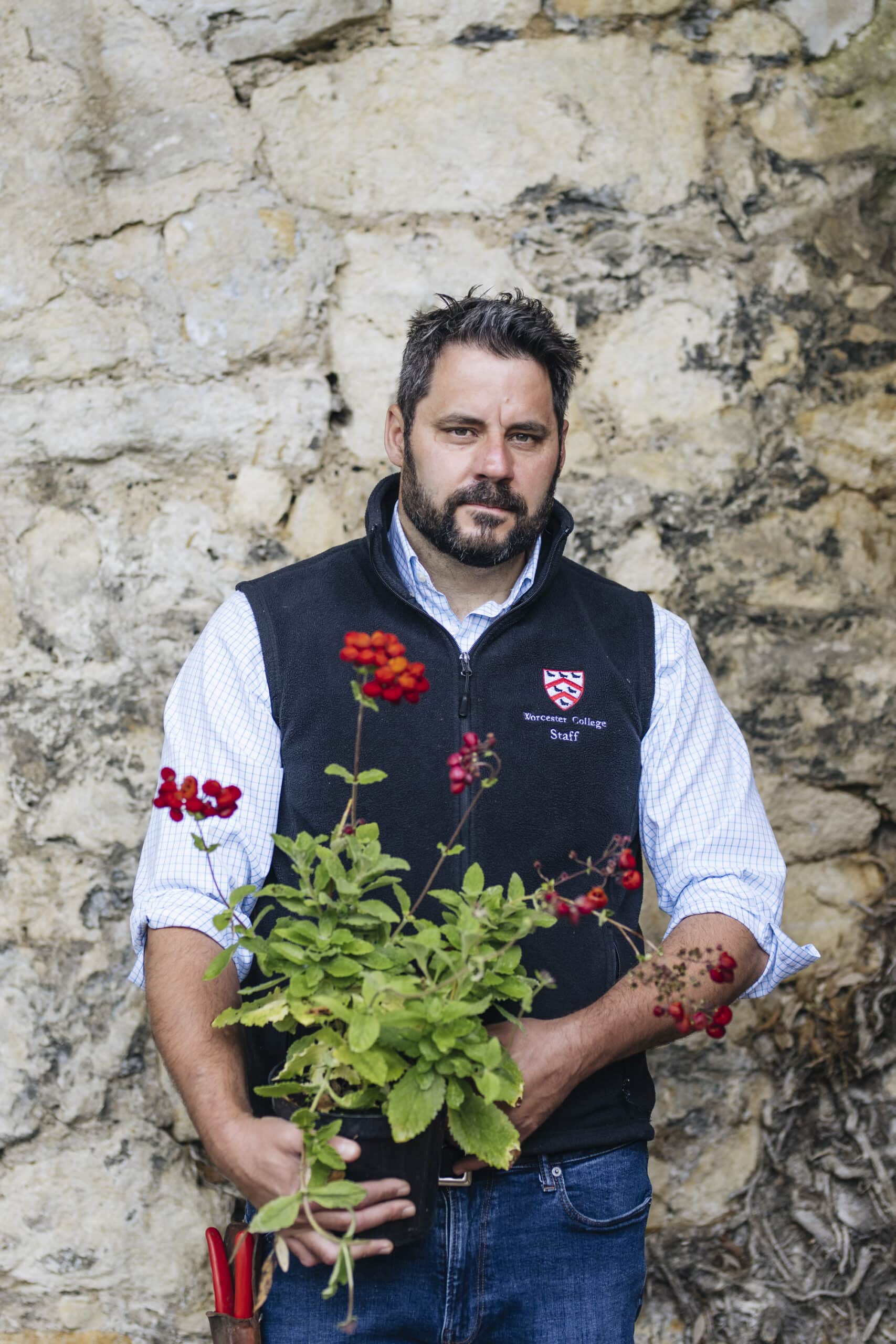
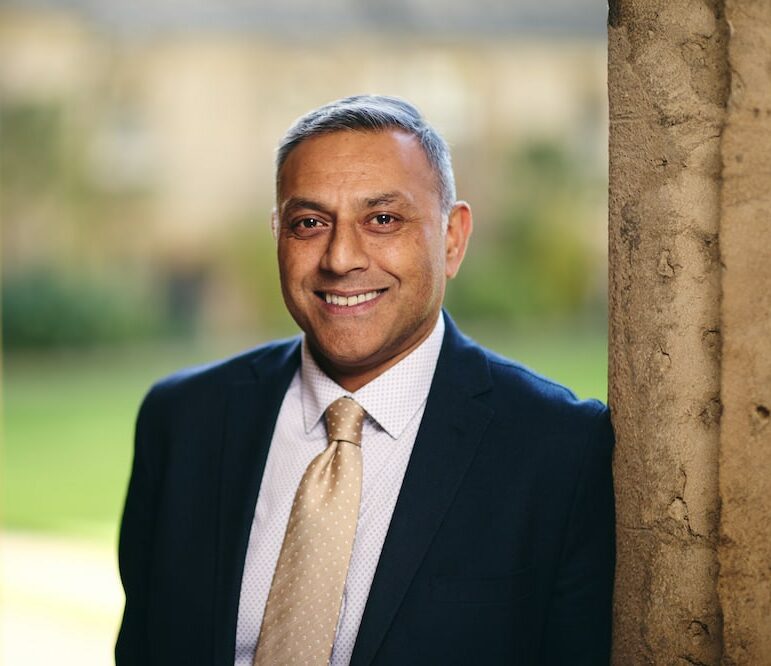
Harmohinder Bahl
Home Bursar
Harmohinder – or ‘H’ – has overall responsibility for the domestic teams in College, including accommodation, catering, conferences and the Porters’ Lodge.
His PA is Emily Sahadeva (emily.sahadeva@worc.ox.ac.uk 01865 278330).
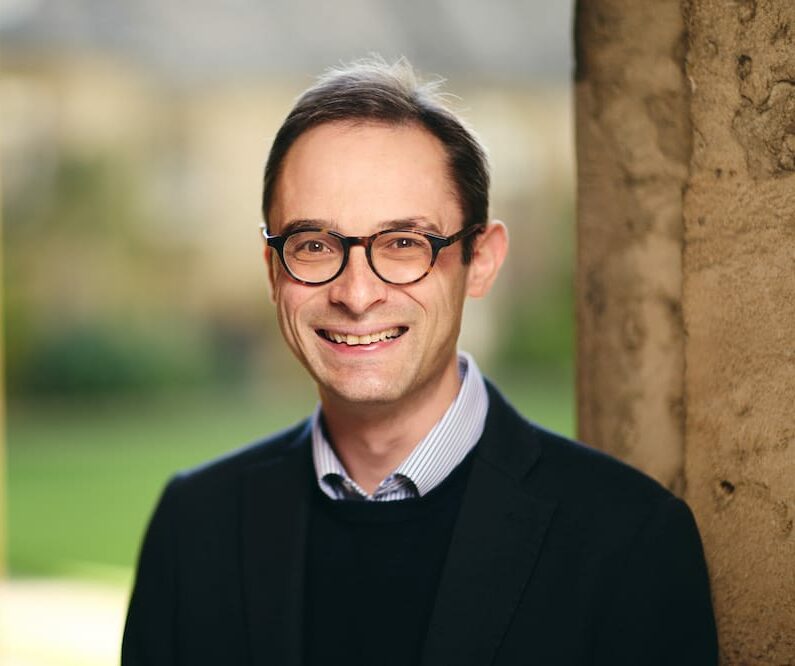
Mark Bainbridge
Fellow Librarian & Keeper of the Archives
Data Protection Officer
Education
MA MPhil (Oxford), MSc (City, London)
As Librarian, I am responsible for the College’s libraries. I run the modern library for current members and care for the historic library’s special collections of manuscripts, early printed books, prints and drawings, making them available to researchers. I have been at Worcester since 2011.
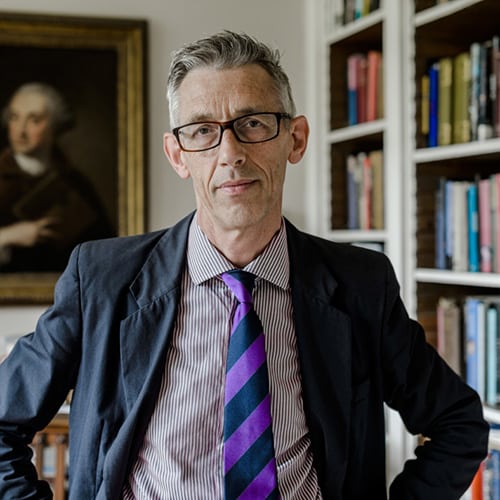
Professor Sir Jonathan Bate CBE FBA FRSL
Senior Research Fellow
Professor of English Literature
Provost (2011-2019)
Education
MA PhD (Cambridge)

Dr Eleanor Bath
College Lecturer in Biology
Education
BA BSc (New South Wales), DPhil (Oxford)
I am a Departmental Lecturer in Biology (Behaviour) in the Department of Zoology at Oxford. I’m currently studying the effects of mating on female aggression in fruit flies, and looking at female-female aggression in a variety of other species (including humans!).
I am broadly interested in all things evolutionary, particularly those related to sexual or social selection. My research ranges from genital morphology to female aggression and the expression of secondary sexual characters. I’m currently based at Christ Church College and the Department of Zoology at the University of Oxford in the UK. I’m interested in a broad range of topics and am always happy to talk about potential collaborations. My main focus right now, though is on female-female competition, with the majority of my work looking at the role of mating in increasing female aggression in fruit flies.
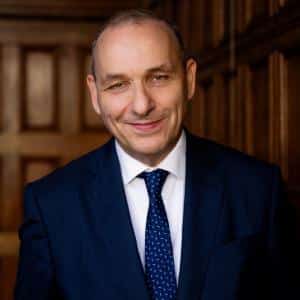
Sir John Benger KCB
Honorary Fellow
Master of St Catharine's College, Cambridge
Clerk of the House of Commons (2019-2023)
Education
1982, PGCE DPhil
Sir John Benger is the 40th Master of St Catharine’s College, Cambridge. He completed his undergraduate studies at St Catharine’s and his doctorate at Worcester College, Oxford, which explored Elizabethan puritan polemical and satirical writings. He went on to join the House of Commons Service in 1986 and was the 51st Clerk of the House of Commons from 2019 until September 2023, serving as the chief adviser to the House on matters of parliamentary procedure, privilege and broader constitutional issues. In the 2023 New Year Honours list he was appointed Knight Commander of the Order of the Bath for services to Parliament.

Professor Anthony Blakeborough
Emeritus Professor of Engineering Science
Tutor in Engineering Science (1994-2017)
Emeritus Fellow
Education
MA PhD (Cambridge), MA (Oxford)
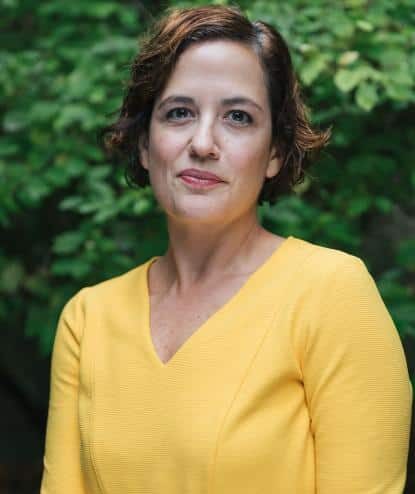
Professor María del Pilar Blanco
College Lecturer in Spanish
Professor of Spanish American & Comparative Literature
Fellow & Tutor in Spanish, Trinity College
Education
BA (William & Mary), MA PhD (NYU)
I am Professor of Spanish American and Comparative Literature in the Faculty of Medieval and Modern Languages and a Tutorial Fellow at Trinity College. My current research focuses on the emergence of popular science writing in Spanish American periodicals of the late nineteenth and early twentieth centuries. I grew up in Puerto Rico and studied in the USA, going on to hold permanent posts in Aberystwyth University and University College London before moving to Trinity in 2012.
I tutor undergraduates on the Spanish first-year course, and on the second- and final-year Modern Spanish-American paper (Paper VIII), Spanish-American authors (Paper XI), and Spanish-American Optional papers (Papers XII). I also offer translation classes.
At the Faculty of Medieval & Modern Languages, I lecture to undergraduates on a range of topics relating to Spanish-American literature from the 19th to the 21st centuries. Since my arrival at Oxford, I’ve given lectures on modernismo, the Spanish-American short story, the avant-garde poets (1910s-1930s), women writers, and the Mexican Revolution, among other topics.
At postgraduate level, I offer an option on ‘Haunting in Spanish American Literature’. I have supervised doctoral students working on a range of topics related to Latin American and, more widely, hemispheric American literature and culture, and haunting/the ghostly. I welcome students who are interested in studying topics related to literature and science; spectrality; landscape; intellectual history in Latin America and beyond. I’m very interested in supervising comparative projects that explore transnational literary and intellectual exchanges in the nineteenth and twentieth centuries.
My first monograph, Ghost-Watching American Modernity: Haunting, Landscape, and the Hemispheric Imagination explored the ways in which different landscapes in the Americas breed different stylizations of ghosts and haunting. I have co-edited, with Esther Peeren (University of Amsterdam), two collections on the topic of ghosts: Popular Ghosts: The Haunted Spaces of Everyday Culture (Continuum, 2010 and The Spectralities Reader: Ghosts and Haunting in Contemporary Cultural Theory (Bloomsbury, 2013).
I have written articles and chapters on Mexican fin-de-siècle Spanish American popular science, Spanish American modernismo, global modernisms, spectrality, and Latinx studies. My current book project, entitled Modernist Laboratories: Science and the Poetics of Progress in Fin-de-Siècle Spanish America (under contract with Oxford University Press), explores the growth of science writing in Spanish-American literature from the 1870s to 1930. I have been invited to give talks related to this project across the world.
I was the recipient, in 2017-18, of a British Academy Mid-Career Fellowship, which allowed me to advance the research and writing for the project. Between 2015 and 2017 I was co-investigator, with Joanna Page (Cambridge) of the AHRC-funded Science in Text and Culture in Latin America research network, which brought together scholars working on literature, cinema, cultural studies, film studies, visual art studies and history of art, as well as sociologists and historians interested in the history and philosophy of science.

Simon Boddie ACA
University of Oxford Chief Financial Officer
Supernumerary & Governing Body Fellow
Education
MA (Cambridge)
Simon Boddie is Chief Financial Officer for Oxford University. He joined the Board of Oxford Science Enterprises as a University representative in late 2021. He is also a Non-Executive Director of Learning Technologies Group plc, an AIM listed market leader in the fast growing workplace digital learning and talent management market. Prior to joining Oxford University, he was on the Boards of FTSE 250 businesses for 15 years. From 2016 he was Chief Financial Officer of Coats Group plc, the world’s leading industrial thread manufacturer, and previously Group Finance Director of Electrocomponents plc, the global multi-channel provider of industrial and electronic products and solutions. He was also a Non-Executive Director and Chairman of the Audit Committee of Page Group plc, a listed International professional recruitment company, from 2012 to 2021. Prior to this he worked for Diageo, where he held a variety of senior finance positions, Hill Samuel Bank and Price Waterhouse. Simon is a member of the Institute of Chartered Accountants in England and Wales and has an MA from the University of Cambridge.
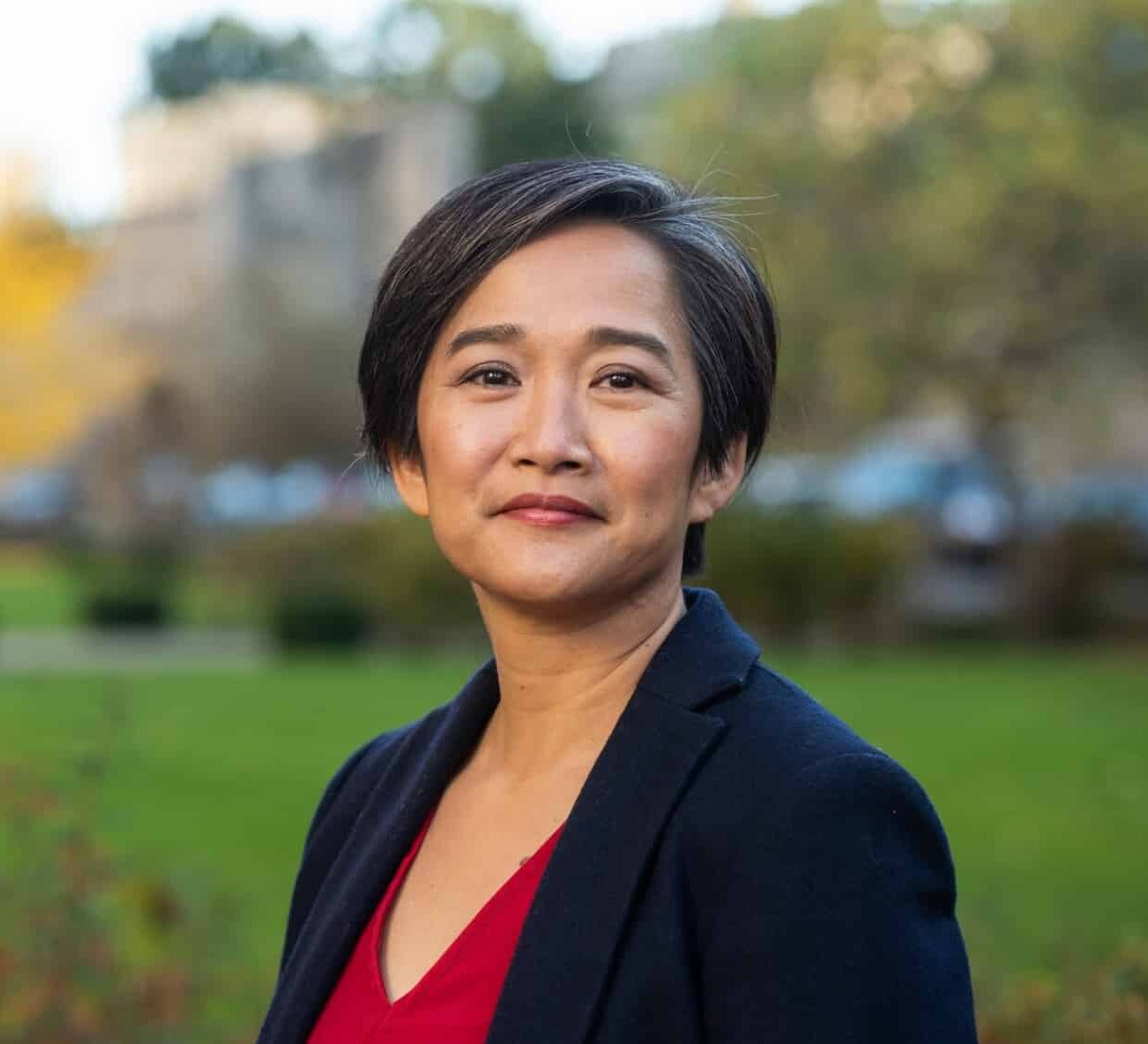
Jo Bowd
College Nurse
Book an appointment with the College Nurse
- In life-threatening emergencies please dial 999 immediately, then contact the Lodge (01865 278300)
- In other emergencies, get in touch with the Lodge (01865 278300)
- During the week in office hours, for welfare requests, contact the Welfare Officer: welfare@worc.ox.ac.uk
- During the week in office hours, for academic requests, contact the Academic Administrator: academic.administrator@worc.ox.ac.uk
- Out of hours (7pm-7am), request the Duty Dean via the Lodge (01865 278300)









